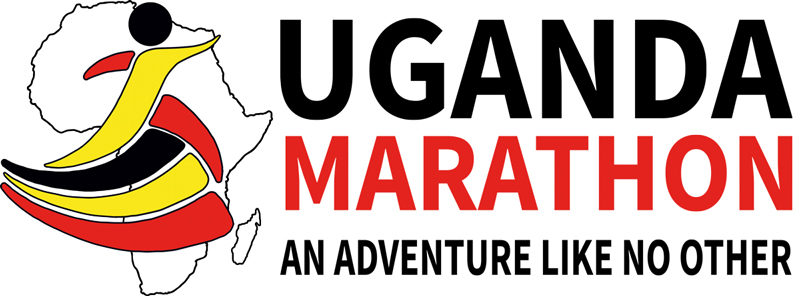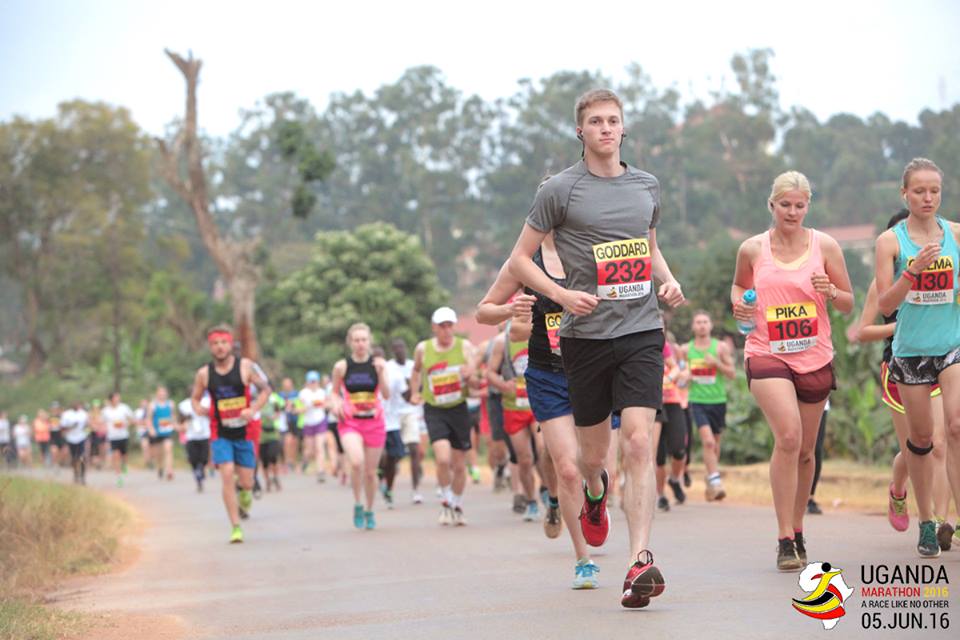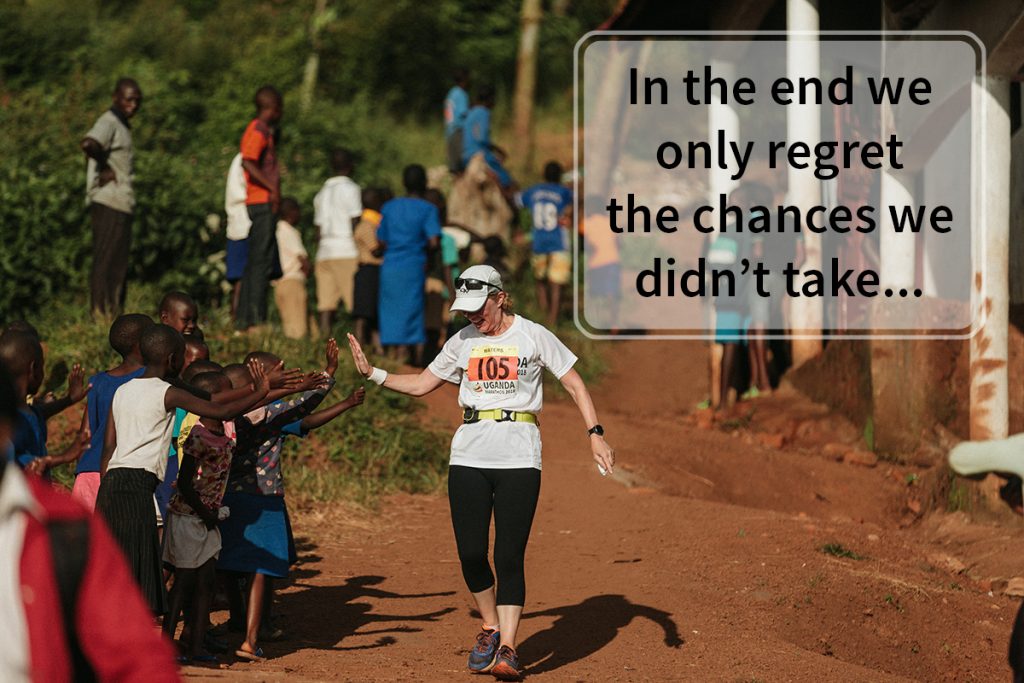Welcome to the Uganda Marathon Runners’ Blog! Our series of blogs dedicated to our participants preparing to take part in this year’s event. Every Sunday, we’ll share new tips to help in your preparations for the 7-Day adventure, from training tips to fundraising and travel advice.
Written by a former participant, these blogs are all about helping our group of 2018 runners – please feel free to get in touch if you have questions or topic suggestions – we’d love to help!
So Uganda’s your first race? (Or you’d like to brush up on the basics!)
No problem! Everyone has to start somewhere- whether Uganda is your first race ever or the first time you’re tackling a particular distance, here we’ll go through the basics so you’ve got them covered. When I signed up to the Uganda Marathon’s 42K in 2015, my fitness was practically zero and I knew very little about running. But before long, I really got into it and it became routine. Your body will adapt and you’ll pick it up quicker than you expect, so don’t worry if you’re literally starting out.
And if you’ve got some running experience under your belt, but would like to brush up, that’s great too! Here are some tips to help, which can sometimes get missed in the midst of training.
Here are 10 tips to get you started and to bear in mind over the coming weeks, whether you’re running the 10K, 21K or 42K in Uganda…
1. Break it up
When I started running, I found a marathon distance pretty scary. Heck, even a 10K means running continuously for around an hour, which is pretty intimidating in the early stages.
To get around this fear, I broke down my overall race goal (42K in my case) into portions. My first goal was to be able to run 5K, then 7.5K, then 10K and so on, steadily over time. If you keep working on the smaller goals, before you know it, your overall goal will be within reach. Just focus on one thing at a time!
Each milestone reached will feel like a ‘win’, which in turn will build your confidence and belief. You’ll feel some serious momentum in your training as well. Nice!
2. Build gradually
As the week’s progress, you’ll want to start covering longer distances, but be mindful not to go too far, too quick. This is a major cause of injury amongst runners. As a guide, only increase your total weekly mileage by 10% from the previous week. Start with small distances and gradually build – you only want to be running close to your race goal distance towards the latter stages of your training.
3. Find a training plan which suits you
Everyone is different when it comes to running, so try to find a training plan which suits you. And don’t be afraid to switch if you think you’ve found a better one. A search on Google is a great idea- just try to find one which fits your experience as a runner. It’s also advisable to find one which will fit around your lifestyle, as you’ll be more likely to stick to it.
Generally, I find three runs a week can be a good amount, especially at the beginning, and that’s for most distances! They’ll consist of a:
- Long Run – running at a steady pace, where it’s enjoyable and you could hold a conversation with someone whilst running. As with the name, this will be your longest session
- Recovery Run – again a steady pace where a conversation in sentences is possible. Shorter than your long run
- Strength Building/Threshold Run – a comfortable, hard run. You could still talk to someone but not in complete sentences. It’s your shortest run too. A few weeks in, I’d include some hill training in this one in prep for Uganda. Maybe some intervals too, if you’re keen to build speed!
Of course, this would just be a foundation – see your specific plan for what to do week-to-week, and the number of sessions you do will vary on your goals and experience.
4. Rest Days, Sleep and Recovery Weeks are key
You’ll need planned rest days included in your training. This is when your body heals and you’ll become a stronger runner.
Getting a good night’s sleep is also essential, as you’ll need to make up for all that extra energy you’re burning in training!
Recovery weeks are good for injury prevention too. Every 4-6 weeks, drop your total weekly mileage (anything from a third to 50% is a good rule of thumb) and keep all the sessions at an ‘easy pace’ these weeks. You’ll be better off for it in the long-term!
5. Make training as fun as possible
Keep your training fun so you want to do it. Don’t let it become a chore and avoid giving up anything you especially enjoy doing for training- build your training around your life, not the other way around! After all, you’re going to spend a lot of time doing it over the coming months. Music, podcasts or get a friend to run with you are all ideas. Maybe even check out your local parkrun, join a running club or join us for one of our social training runs if you’re in/near London.
6. Be flexible with your training
It’s important to not be too regimented with your training, and always listen to how your body feels first. If you feel too tired to run or your legs don’t feel 100%, chances are that’s the case.
Be willing to take an extra rest day, cut a run short or reduce your miles one week if you feel it’s best. Training rarely goes exactly how you plan out (or how it’s described in the plan) and you need to react appropriately to ensure you stay injury free. Running ‘through the pain’, for example, is rarely wise.
7. Keep a training log
It’s a good idea to write down the details of your runs, such as the distance, how long you were running, total weekly mileage and how the session felt – a brief note about how your run felt can also be insightful when judging if your training is on track and if you need to make any changes.
Either use a good old fashioned pen & paper, or one of the many running apps available. I used Strava for example, which also has UGM social running group!
8. Book a mid-training race
Booking a race shorter than your final race goal in the midst of your training can be useful. It gives you the experience of running in an actual event, as well as the opportunity to test out your race day kit before Uganda. It can also serve as a nice confidence boost and give you a milestone to focus on.
If you’re running the 42K in Uganda, why not run a half-marathon first at home? Or if you’re taking on the 21K, run a 10K? A parkrun can also serve as a useful milestone for people running the Uganda Marathon’s 10K event.
9. Don’t forget to taper
Often overlooked, but so essential if you’re going to be at your best for Race Day. We’ll have a blog dedicated to this in later weeks, but this is all about decreasing mileage and allowing time to rest/recover in the final weeks of training. Normally, this will begin from 4 weeks or less, depending on the distance you’re preparing for.
Make sure to schedule some weeks in for a good taper if you want to run your best in Uganda!
10. Believe in yourself
This one’s key! If Uganda is your first race, or you’re just feeling nervous about running a race in rural Africa – don’t!
I promise you, with some regular training over the coming weeks, as well as the incredible atmosphere and support on Race Day (from both the crowds and your fellow runners), you’ll reach the finish line! I was very much in the same boat in 2015 but little did I know, it would all turn into quite a passion for running, which would continue to be a big part of my life. And I also managed to get a time I was really pleased with in Uganda as well!
Just take your training week-by-week, build gradually, following a training plan which suits you, be sure to rest and sleep, listen to your body, record your runs, do a practice event and taper. Then, you’ll have no problems in Uganda!
You’ve got this! Good luck! 🙂
Up next time: Tips for Kicking off your Fundraising!




